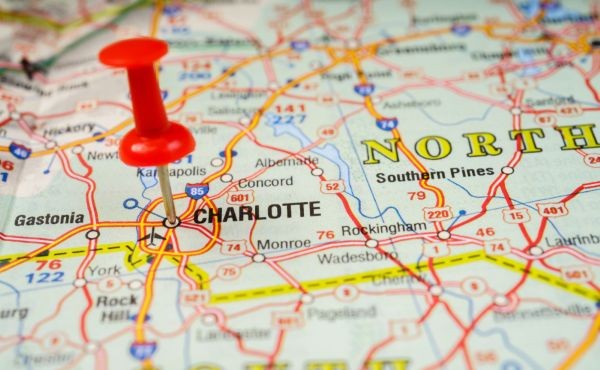Charlotte, known as the Queen City in honor of Queen Charlotte, has seen a retail boom in the post-pandemic era, driven by robust population growth and resilient consumer demand. According to recent reports, retail vacancy rates in the city have stayed below 4% in recent years, with most vacancies stemming from less desirable areas or bankruptcies among big-box retailers like JOANN, Big Lots, and Party City. Even then, new tenants are quickly snapping up those spaces.
Tenant demand remains fierce as retailers race to keep pace with Charlotte’s fast-growing population. In 2024 alone, the city gained over 24,000 new residents, with the broader metro area adding 46,000 people—making Charlotte the 14th largest U.S. city and the 19th largest metropolitan area. Coupled with low unemployment and rising household incomes, this growth has retail tenants urgently searching for new locations.
Local real estate experts have also noticed an increase in “shadow inventory”—spaces from struggling retailers or restaurants that landlords quietly reclaim through lease buyouts, terminations, or evictions. These spaces rarely hit public listings and are quickly backfilled, keeping vacancy rates low and market health strong.
Retail rents have climbed steadily, averaging just over $21 per square foot today compared to $15 per square foot in 2018. These higher rents have fueled strong returns for landlords but also raised the stakes for tenants, who must innovate to attract and retain shoppers.
Several national and international brands have entered the Charlotte market recently, including Primark, Sierra, ZARA, Rag & Bone, and Tommy Bahama’s Marlin Bar. On top of that, there’s fierce competition for outparcel and endcap spaces from banks like Chase, Fifth Third, and Huntington, and from a wave of fast-casual and full-service restaurants such as Whataburger, Raising Cane’s, Cooper’s Hawk, Dutch Bros., and Sweetgreen.
Existing retailers are also evolving. Sprouts Farmers Market is opening a new urban-format store in the NoDa neighborhood, IKEA has launched a smaller-format store at Promenade on Providence, and Chipotle and Chick-fil-A are expanding drive-thru-only locations.
Grocery chains are especially active, adding stores to serve growing residential pockets across the city and suburbs. Publix leads this expansion, followed by Harris Teeter, Sprouts, and Lowes Foods, while Walmart Supercenters and Target are popping up in multiple neighborhoods.
New retail hubs are reshaping the market. Ballantyne Bowl, a Northwood Retail project, will soon include Charlotte’s first Wegmans grocery store, opening in 2027 alongside office and residential space. South of the city, the Indian Land area just across the South Carolina border is buzzing with new developments and big-name tenants like Target, Costco, and Lowes Foods, lured by lower property taxes.
Meanwhile, Charlotte’s historic Plaza Midwood neighborhood is set to welcome The Commonwealth later this year. Developed by Crosland Southeast and Nuveen, the project will feature over 100,000 square feet of retail in a mixed-use setting, with Austin-based Uchi restaurant anchoring the lineup. The development aims to refresh the neighborhood’s character while complementing its artsy, bungalow-lined streets.
Charlotte’s economic momentum is also fueled by its airport, which remains one of the world’s busiest. With an estimated \$30 billion regional economic impact, Charlotte Douglas International Airport ranks sixth globally in flight activity and seventh in North America for passenger traffic, welcoming nearly 59 million travelers this year. Its iconic rocking chairs greet visitors and new residents alike, offering a taste of the city’s signature charm—where a laid-back Southern vibe meets a dynamic, fast-growing metro.
Source: RE Business

